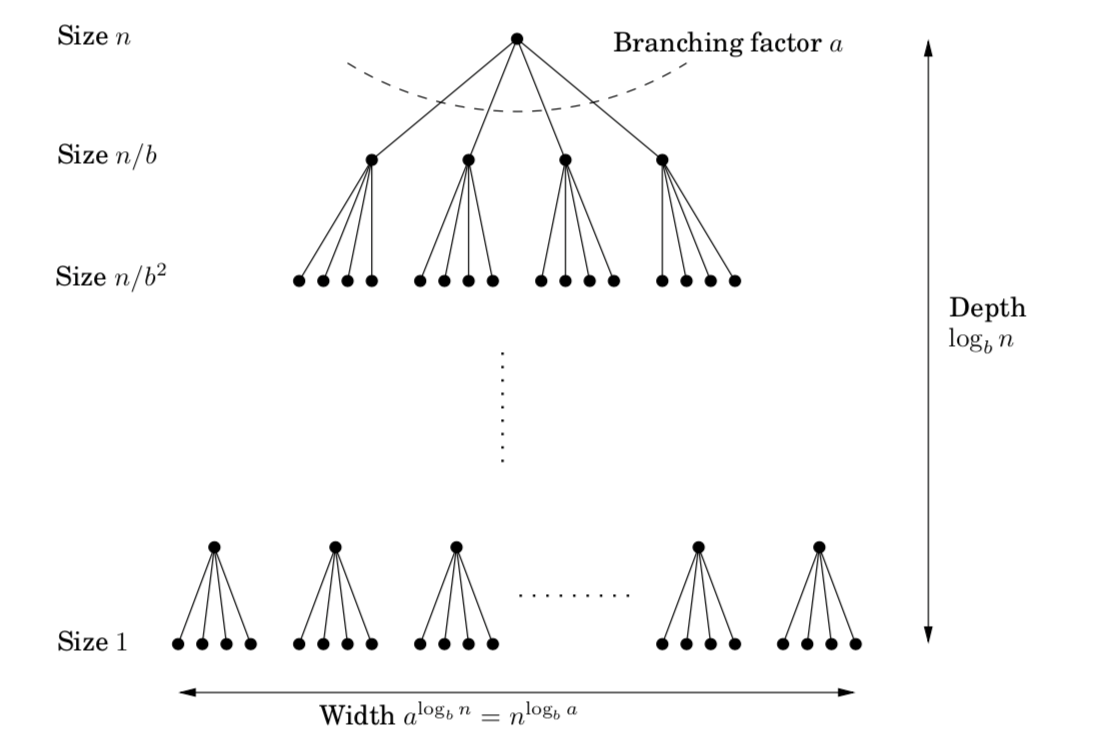Master's Theorem
Theorem: $T(n)=aT(\lceil n/b\rceil)+O(n^d)$ for some constants $a>0,b>1,d\ge 0$ then \(T(n)=\begin{cases} O(n^d)&d>\log_b a\\ O(n^d\log n)&d=\log_ba\\ O(n^{\log_ba})&d<\log_ba \end{cases}\)
Proof: 
Each problem of size $n$ is divided into $a$ subproblems of size $n/b$. Each level has problem of size $n/b^k$ and work done is: \(a^k\times O\left(\frac nb^k\right)^d=O(n^d)\times \left(\frac ab^d\right)^k\)
As $k$ goes from $0$ (root) to $\log_bn$ (the leaves), these form a geometric series with ratio $r=a/b^d$
- $r<1$: Decreasing series, sum is first term $O(n^d)$
- $r>1$: Increasing series, sum is last term $O(n^{\log_ba})$
- $r=1$: All $O(\log n)$ terms are equal to $O(n^d)$